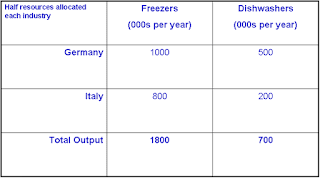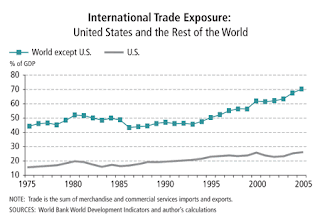
As we all know, the Presidential elections in the US are a very deeply discussed issue nowadays, as the Americans are basically left to choose, either Mc Cain, fighting for globalization or Obama, promoting protectionism.
We’ll focus on Mr. Obama’s view, considering what sort of measures he might take in order to protect the US economy from foreign trade.
Nowadays, the US remains the greatest economic power worldwide, but it is facing strong competition from overseas as well as internal difficulties. When the US economy was built up, they focused on venturing abroad in order to promote trade and set up special production sites in other countries. Whatsoever, the US has reached so far, that their local industry starts to be eroded.
Furthermore the US achieved something far more important than anything else: the Dollar became the world’s currency. This means that all the main decisions on the amount of cash in circulation are made within national borders. This gives the US an exorbitant privilege as it guarantees a maximum degree of national independence. Still, by becoming the world’s currency, existing in huge amounts the dollar also became the most threatened money, as it can be bought to collapse by external forces.
However the US is far from being in a good state nowadays, private, public and corporate debt far exceeds any known dimensions, millions of households are constantly borrowing huge amounts of money so that in the end the future they’re looking forward to, doesn’t seem to be the one they expected.
But is it going to affect the US and the whole world in a positive way?
If Mr. Obama gets elected president of the United States, he’s believed to set up stricter regulations, in order to protect his country and promote employment. I believe that to start with he’s going to set up price-control objectives in order to protect the US-Dollar, which is steadily losing in value.
As for this, he might set some specific restrictions as well on exports as on imports. The export restrictions may include raising costs of smuggling prevention, the importance of keeping domestic prices down by increasing domestic supply or also to shift foreign production and sales. Considering the restrictions that Obama’s administration might put on imports, they may include the prevention of having exports priced below national prices and finding a way of having foreign producers lower their prices.
I believe that by “protecting America from foreign trade”, Obama believes he found a way of “saving the middle-class” by restricting imports in order to promote the production of local consumption goods and services that formerly were imported.
As we all know, Obama keeps on praising that he wants to “save the middle-class”, but I truly believe that by enforcing the protectionist level of the US, he’s not going to reach his objective. Obviously he will create new jobs and promote employment, but is this truly Americas main aim??
The US is facing such an incredible amount of debts nowadays, they’re not likely to pay it back any time soon, so is it a good idea to set up new facilities (as they outsourced many branches of production) and pay a higher amount of labour-cost? Is it actually promoting the American economy?
Well I don’t think so. To the contrary, by setting up restrictions, the EU, China and many other developed countries won’t hesitate and follow him, and the whole system of globalization will be facing a breakdown. And the US, who’s obviously going to be “in charge”, won’t be able to do anything about it as the value of their money is decreasing while their amount of debts is increasing.
To end up with I believe that the main problem nowadays is that the world is suchlike interlinked, that his willingness of promoting protectionism came to late. All the countries depend on each other to a certain limit and if one of them starts proving “selfishness”, I believe, it’ll end up in a complete economic desaster.





